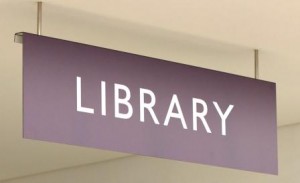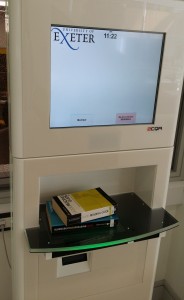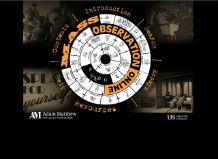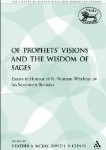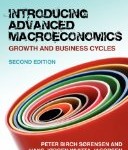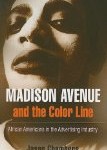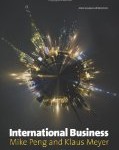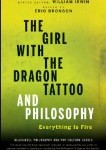Welcome to all our new students! We hope you’ve been enjoying Freshers’ week.
Here are a few tips to help you on your way as you start getting to grips with your reading lists and with our extensive range of Library resources.
Start using e-books and journals!
- The Library is so much more than the print resources you’ll find on our shelves. We also have a wide range of online books and journals and the beauty of these is that you can access from anywhere you have an internet connection.
- The Library Catalogue is the best route through which to access our e-resources.
- Search results will show whenever a title is available electronically:
- From the above view you just need to click on the title of the resource to view the full record and then click on the appropriate link to access the resource.
- Login with usual Exeter username and password and now you’re ready to read!
Get to grips with our self-service systems
We understand that you need to study in a flexible way, and we’re here to support that. This is why the Forum Library is accessible 24 hours a day: Library staff are available 08.00 – 20.00 on weekdays and 10.00 – 18.00 at the weekend but outside of these hours registered staff and students can still swipe in using your Unicards (see our website for full details plus the opening hours of other Library sites). To get the most out of our 24/7 facilities you’ll need to be familiar with our self-service borrow and return facilities. They’re easy to use and all located near the main Library entrance on Forum Level 0 – do check them out and then you can start checking out books, whenever you need them!
Manage your borrowing online
Did you know you can always keep track of which titles you have checked out and when they are due back by simply logging in to your Library record online, either through the Library Catalogue or via the Library tab on MyExeter. You can also make renewals this way:
- Once you’ve logged in you’ll see a list of the items you have on loan, together with the date they’re due for return. You can choose to sort by due date, to see which items need to be returned or renewed soonest.
- To renew all of your items, click Renew All.
- If you only want to renew some of them, tick the boxes by the titles you want to renew and click Renew Selected.
- You’ll be asked to confirm you wish to renew these items. Click Yes to complete the process.
- The Status column should now clearly state ‘renewed’ and show the new due date. If any items cannot be renewed, a message will appear to warn you of this and the status column will show the reason why.
- Please note that you can’t renew your items online if they are more than 7 days overdue (7 hours for Express Collections items), or if you have unpaid fines of over £10. In these situations you’ll need to contact the Library in order to renew.
Check out our website
- Further questions? From borrower FAQs and details of the different study spaces available across campus, to research skills and information about your Subject Librarian , you’ll find loads of information on the Library website. Do please take a look.
We wish you all fruitful reading and researching!

